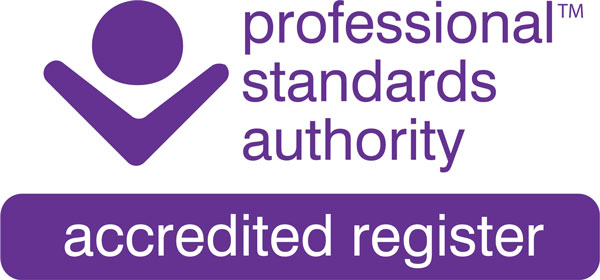Inside our ethics committee
Ian Thomson, former deputy chair of, now consultant to, the HGI’s Registration and Professional Standards Committee (RPSC), shares important learning points from cases presented within the past year for adjudication or advice.
Choosing not to see a client
We are sometimes asked whether it is permissible to choose not to carry on therapy with a particular client, if the practitioner feels uncomfortable about doing so – perhaps because of an attitude perceived as threatening or disclosure of information or actions which, while not illegal, causes unease. According to legal advice, if there is a contract or reasonable expectation of a certain number of sessions, a client could have grounds for complaint if these are suddenly terminated. However, when appointments are offered on a session-by-session basis (as is the requirement for practitioners on the HGI register), the implication is that either party is free to cancel.
Legally, there is no obligation to give a reason for terminating the sessions. However, as a therapist has a duty of care, it may be advisable to say something like, “Unfortunately, I am not in a position to be able to help you further” and to direct the client towards other therapists who may be willing to help (eg by referring them to the HGI website).
It is highly important that the situation is addressed directly, rather than leaving it and hoping it may fade away – for instance, by making a provisional follow-up appointment to be confirmed and then not following up, or cancelling an appointment without making arrangements for another, leaving the client in limbo. One client complained that therapy had been terminated abruptly, without explanation, and wanted the return of fees already paid. On the advice of the RPSC, the practitioner consulted Balens Ltd, which offers block insurance for HG practitioners, who advised the practitioner to respond simply, without providing further explanations that might inflame the situation, and suggested the following wording: “I am really sorry that I was unable to provide the help you needed and also for ending the therapy abruptly, without providing an explanation. In view of this, I am fully prepared to refund the therapy fees.” The RPSC recommended following this advice, and all ended well.
If the client has obtained benefit from the sessions attended so far, there is unlikely to be, from a legal perspective, any need to refund fees already paid – the client would need to make a strong case that they have suffered financial loss, which would be difficult in such circumstances. However, as in the above case, it may be felt that it shows good will to offer to return fees already paid by the client, if, as will necessarily be the case, the therapy is not completed and the client will need to seek more elsewhere. If so, legal advice is to write a letter marked ‘without prejudice’, setting out the position and stating, “In full and final settlement, I am offering to refund you the fees for one session/your sessions, [whichever is appropriate] in view of the fact that I cannot proceed with the therapy.”
If the situation is not straightforward, it is advisable to discuss the circumstances first with a supervisor and then, if necessary, consult your insurer and/or the RPSC for advice. A breach of contract claim can be made up to six years after the alleged breach of contract took place.
Complaints about courses
We are aware that some HG practitioners run courses not accredited by Human Givens College, using HG ideas but not officially under the HG umbrella. We urge caution in this regard – if a course clearly offering HG understandings were brought to our attention and deemed to bring the HG model into disrepute, action would need to be taken.
In the event that a complaint is made against an HG practitioner delivering a training for their own or another company, the RPSC would investigate the behaviour and competence of the individual concerned in relation to their standing as an HG practitioner. It cannot offer any advice or assistance to the practitioner to help them defend themselves against any complaint not related to their behaviour and competence as described above. If you are not sure where you stand in regard to any training you are offering and what claims you make as regards HG, it is advisable to seek advice from Human Givens College before going ahead.
Be careful what you claim!
We would like to remind practitioners, particularly those that have their own websites, that they cannot make the claim that HG therapy is approved by NICE (the National Institute for Health and Care Excellence), although some of its elements are in accordance with NICE-approved ones.
It is also again worth emphasising that practitioners cannot claim to be PSA-accredited or to be offering a PSA-accredited therapy. The correct phrasing is to describe oneself as “a member of the HGI Register, which is accredited by the Professional Standards Authority (PSA)”. All fully qualified practitioners who are on the HGI register and are practising in the UK (alas, not in Ireland or elsewhere in the world) are entitled to use the PSA logo (available from the members area) on their stationery and in marketing.

Delivering the HG model
With the HG approach becoming increasingly well known, our books widely read and our website attracting a lot of traffic, it is not uncommon now for clients to be aware what therapy from the human givens approach involves and specifically to be looking for that. It is, therefore, not unlikely (as has, indeed, happened) that someone who comes to a session expecting one approach but receives another (in the form of add-on techniques from other therapies) may make a complaint. The RPSC is likely to uphold such a complaint if the HG practitioner has clearly strayed beyond what is appropriate within our model of therapy.
We are aware that it is important to stay abreast of therapeutic developments and to incorporate new thinking and techniques as appropriate, but it is not for individual practitioners to decide what is appropriate. A research committee has been established with the remit of looking at new research findings and reporting back anything to the HGI Board that we need to take account of. New developments of relevance to practitioners are reported in the journal and included on the members’ area of the HGI website.
Requests for notes or reports
The RPSC is sometimes asked for advice about how to respond to requests for case notes. If the request relates to use in divorce proceedings, it is worth reiterating here that notes relating to couple counselling can be provided only with the explicit consent of the other partner.
If the police present you with a court order requiring you to submit a client’s notes in connection with a case, you must, of course, comply with the request. In the absence of a court order, you should make clear that you cannot legally provide the notes unless they produce evidence that the client has given their informed consent. (This might particularly be the case if the client has made allegations against someone else.) You should also check your position with your indemnity insurer.
Safety – and sex discrimination
A practitioner working in a large secondary school felt uncomfortable about being moved to a room at the far end of a long corridor, where she was isolated from other staff, and wondered about her rights in this respect. The RPSC advised her: “In schools and other institutions, it is established procedure for visiting professionals, such as counsellors, careers advisers, peripatetic music teachers, etc, to be accommodated in a working environment that helps ensure their own safety and that of their clients/pupils. This would include reasonable proximity to a source of help, if needed. It is the responsibility of the school to ensure that reasonable safeguarding measures are in place. In view of your discomfort as described, you should raise the matter with the school at the earliest opportunity.”
While not wishing to be alarmist, it is always good practice when working one-to-one in a private session to ensure one’s own desk or seat is closest to the door, so that it is easier to leave the room and seek help, should this become necessary.
The RSPC was also asked by a female practitioner, who works alone from her home, whether it was permissible for her to choose to accept only female clients. There are two legitimate reasons for discriminating in this way: on religious grounds (for instance, if it is a religious requirement that a woman is not alone with a man when her husband is not present) or if the practitioner lacks the skill to help. This might be the case if a woman went into a barber’s shop and asked for a haircut, but would not be the case if she asked for her hair to be shaved off. It is unlikely that an HG practitioner could claim not to have the skill to help a man.
The practitioner could choose to advertise that she specialises in treating women’s mental health conditions, which might reduce the likelihood of her being contacted by men. However, if a man did ask for an appointment, she would not have grounds to refuse him. If she claimed, say, that she had a year’s waiting list, and the potential client didn’t believe her and chose to bring a civil case (which must be done within six months of the alleged discriminatory act), the court might ask for ‘documentary disclosure’ from the practitioner (eg an appointments diary) to prove her statement.
Carrying out research
Any HG practitioner carrying out research into the HG approach needs to ensure that they adhere to the detailed guidelines in section A 16 of the HGI Code of Conduct. If carrying out the research under the aegis of another institution, it is necessary, of course, also to follow that institution’s own ethical guidelines as well.
‘Detailed records’
A client who requested telephone counselling was reluctant to provide her address to the practitioner for the invoice. The practitioner wondered whether there was any obligation to acquire an address from clients. Balens Ltd advised that name and address of clients is part of the ‘detailed record’ they require for compliance with insurance requirements. The record should also include time and date and basics of the session.
Working online with clients in US and Canada
Practitioners who carry out online therapy need to be aware that Balens Ltd covers therapy work undertaken everywhere in the world, except US and Canada, because of their “high litigation culture”. This is likely to be the case with other insurers, too, so if you already do, or plan to do, therapeutic work with clients from these countries, please ensure you consult your insurer. The section of the members’ area of the HGI website that provides guidelines for delivering online therapy has been updated to include this information.
Keep up to date!
Please remember to look from time to time at the essential information section of the members’ area of the HGI, as the information there is regularly updated as necessary.

IAN THOMSON is deputy chair of the HGI Registration and Professional Standards Committee, and a human givens practitioner and accredited supervisor.

This article first appeared in the Human Givens Journal – Vol 26, No. 1: 2019
Back issues available – each issue of the HG Journal is jam-packed with thought-provoking articles, interviews, case histories, news, research findings, book reviews and more, with no advertising. If you find the articles, case histories and interviews on this website helpful, and would like to support the human givens approach, you can buy a back issue today, they’re available in PDF and print format.

